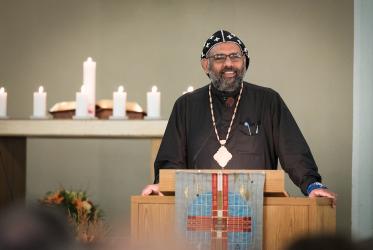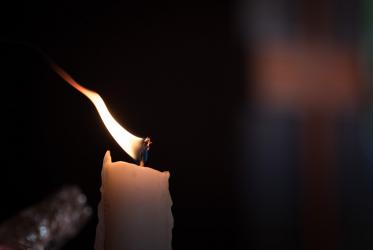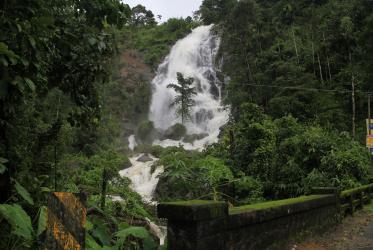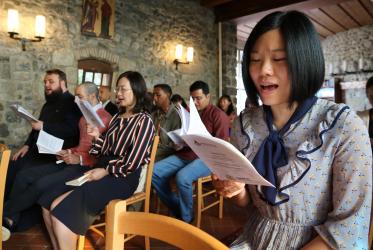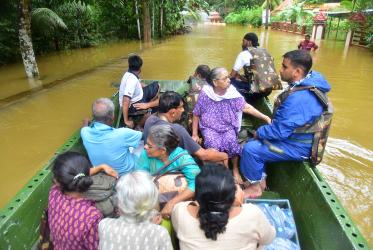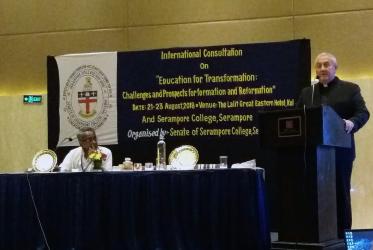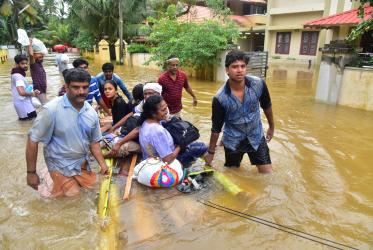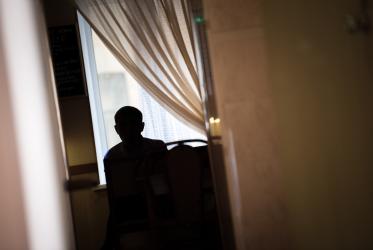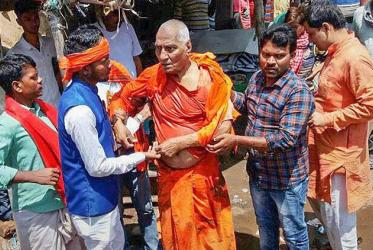Displaying 141 - 160 of 321
26 November 2018
WCC general secretary sends greetings on Diwali
06 November 2018
WCC “receives with joy” verdict which resolves case of Asia Bibi
01 November 2018
WCC represented at International Sanitation Convention in India
18 October 2018
Dalit Liberation Sunday empowers grassroots in India
15 October 2018
Paving the way for ecumenical studies, learning English in Bossey
24 September 2018
New students welcomed at WCC Bossey Ecumenical Institute
13 September 2018
WCC mourns death of Bishop John Victor Samuel
03 September 2018
WCC calls for prayer for flood-stricken Kerala, India
18 August 2018
WCC offers condolences in wake of Indonesia earthquakes
06 August 2018
#WCC70: A prayer about health and healing
20 July 2018
